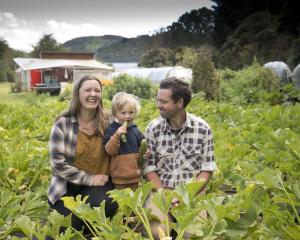Poverty, social isolation, drug and alcohol abuse and violence are a daily reality for Child, Youth and Family social workers, but watching a family turn itself around makes it all worthwhile.
Today is National Social Workers' Day and Cindy Swney and Kerri Cleaver, who have been social workers for Child, Youth and Family for about three years, shared the highs and the lows of the job with the Otago Daily Times.
They both found their work hard, stressful and time consuming, but believed a child's right to be safe in the home was crucial.
"Children are the most important resource we have and we have to look after them and make sure they reach their potential," Mrs Cleaver said.
Their first involvement with a family comes after a person raises concerns about a child with the organisation.
A social worker then assesses the situation by talking to the family, children, educators and professionals from other agencies. The safety of children is the paramount concern.
Once an assessment is carried out, the help CYF can provide in getting the family back on track is decided and implemented.
Help can range from family group conferences, up to Family Court orders in a worst-case scenario.
One of the most common misconceptions when a CYF social worker appeared at a person's house, was that children would be taken away, but the women stressed removal of children was not always necessary.
"Our job is to keep families together, not to split families up," Mrs Cleaver said.
The most common problems they saw in families were poverty and family violence, which often arose from people not understanding the needs of children.
"Neglect seems to be the core of our work," Mrs Cleaver said.
The recession had also increased their workload, along with that of many other social agencies, as people did not cope well when they were stressed.
When dealing with people who were at rock bottom, or had antisocial behaviours, Miss Swney believed it was important to focus on the strengths people, or families, had.
"People often ask how can we work with the people we work with, but I have never met someone I didn't like one thing about. Everyone has redeeming qualities," she said.
It was also important for children to be able to recognise those qualities in their parents.
Being able to listen and have empathy were important skills for the job, as was strength and having support around you.
"It's not for everybody, but it is a good job," Miss Swney said.
SOCIAL WORKERS' DAY
Each day, Child, Youth and Family. -
• Receives about 230 reports of possible child abuse or neglect.
• Holds 20 care and protection, and 40 youth justice, family group conferences.
• Is responsible for about 100 young people in youth justice residences.
• Supports extended family and caregivers, as about 5000 children and young people are in care.
Source: Child, Youth and Family












